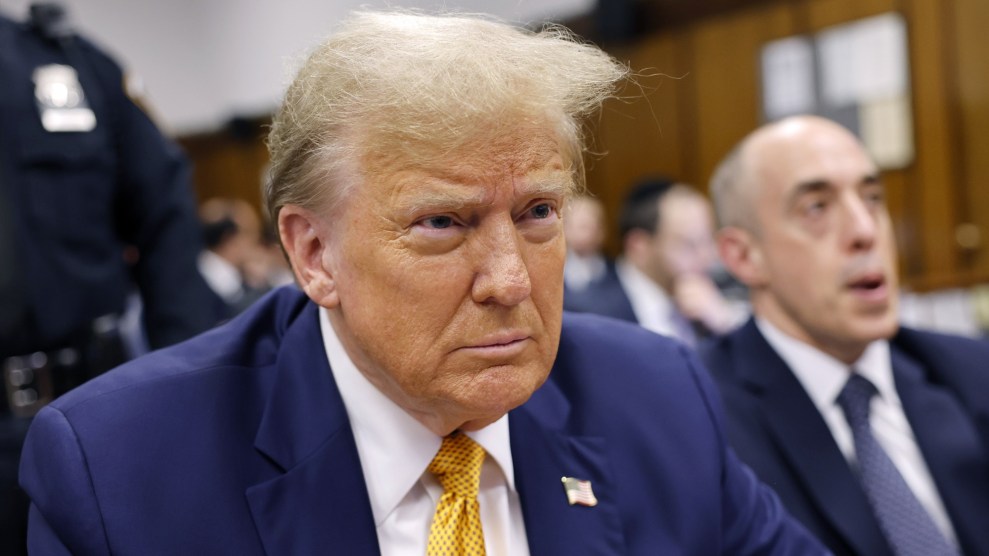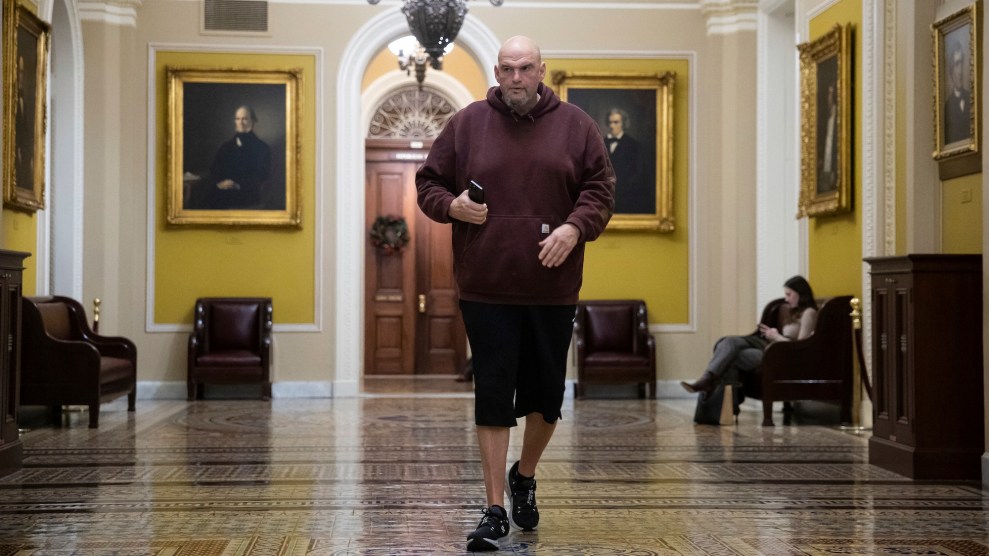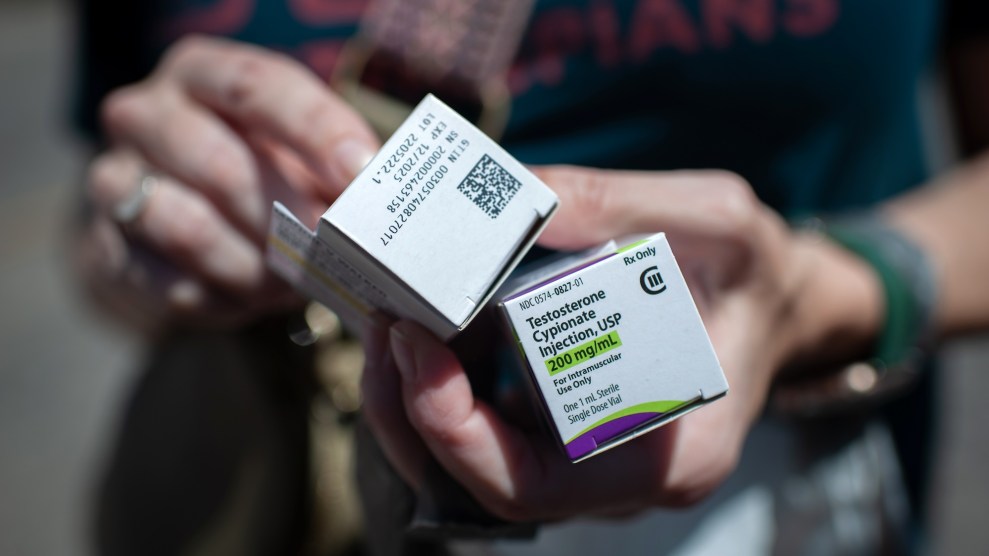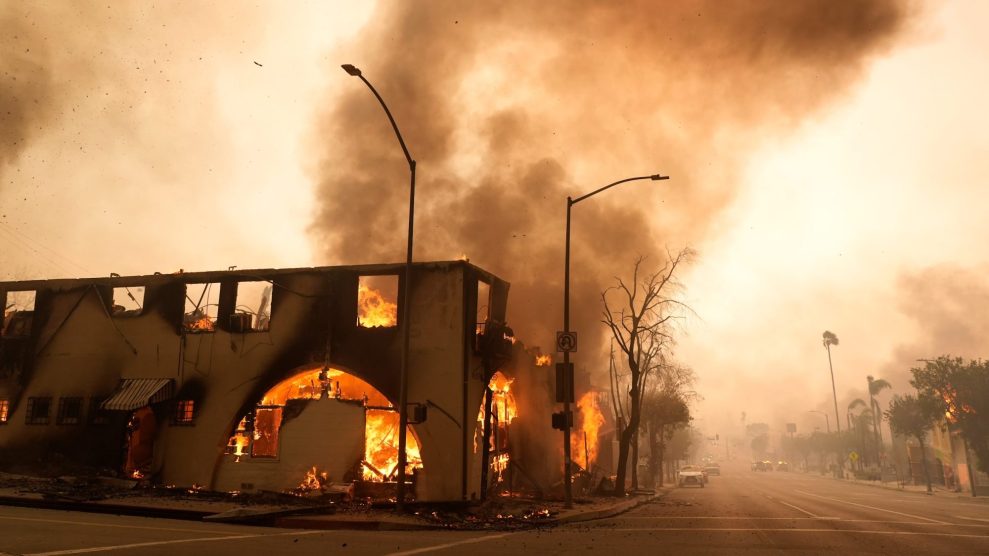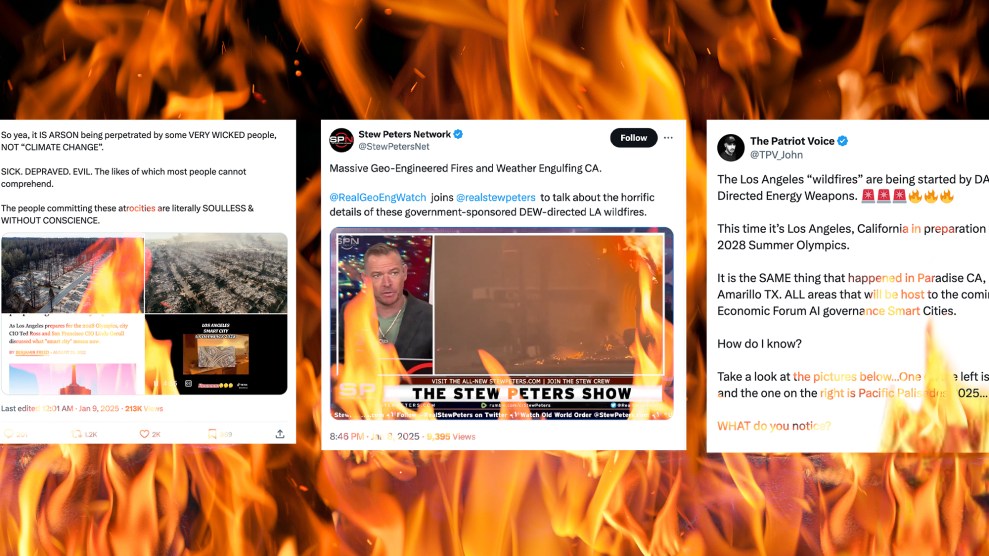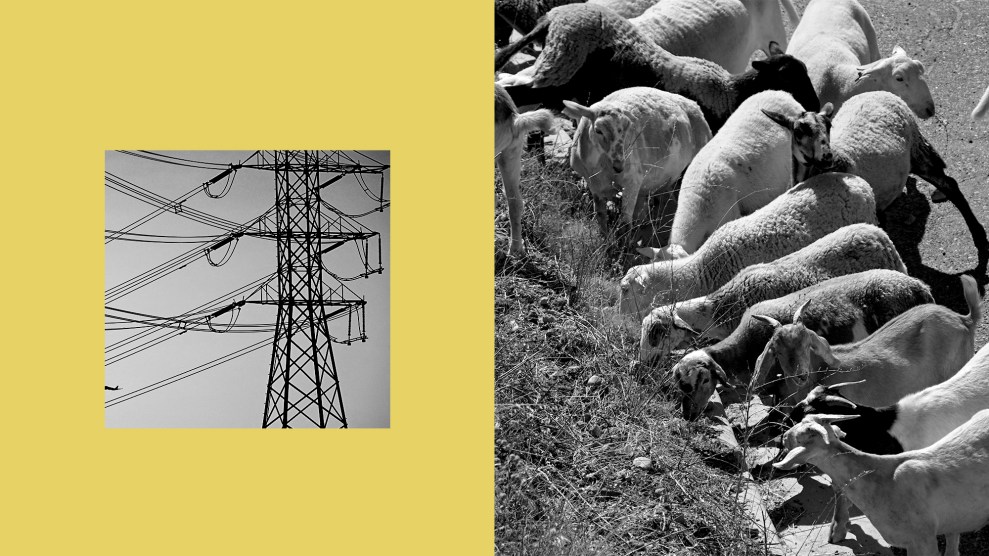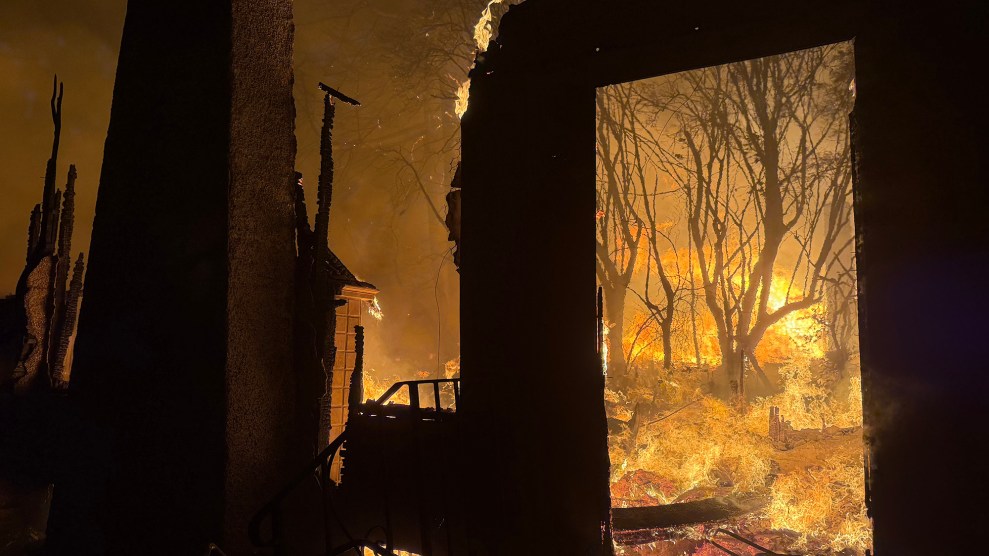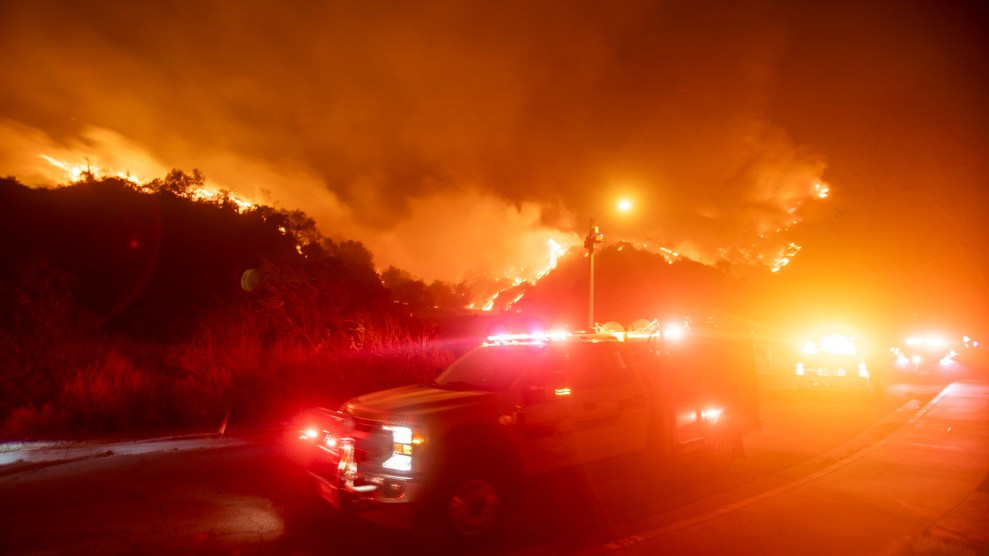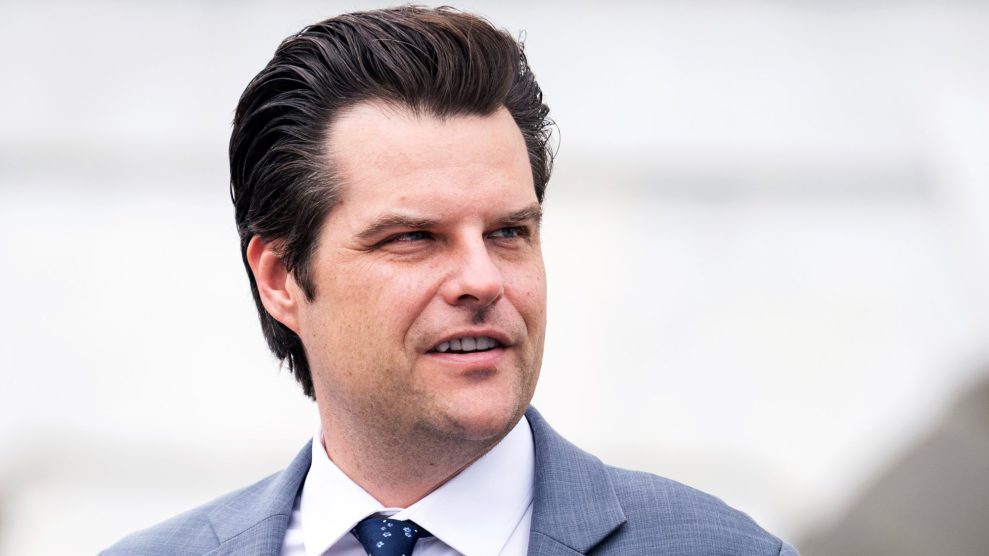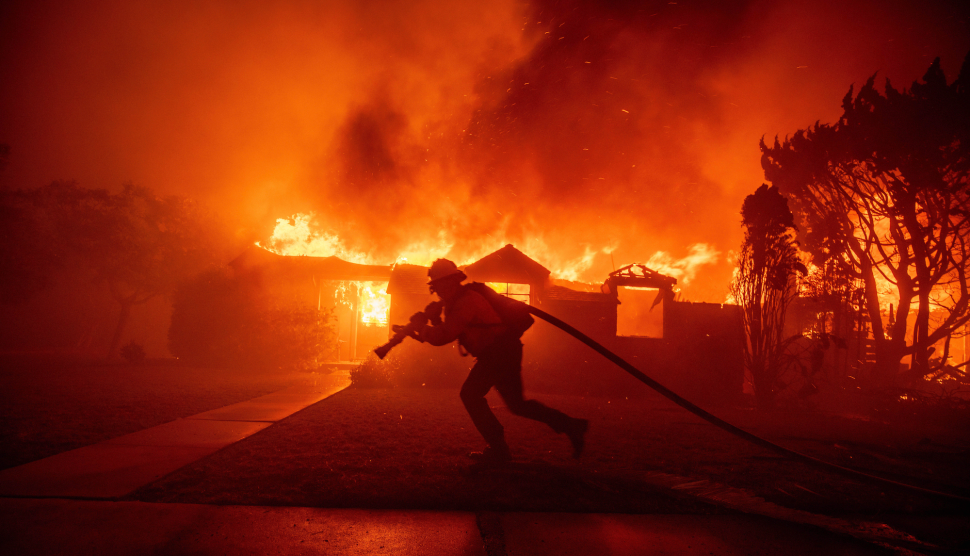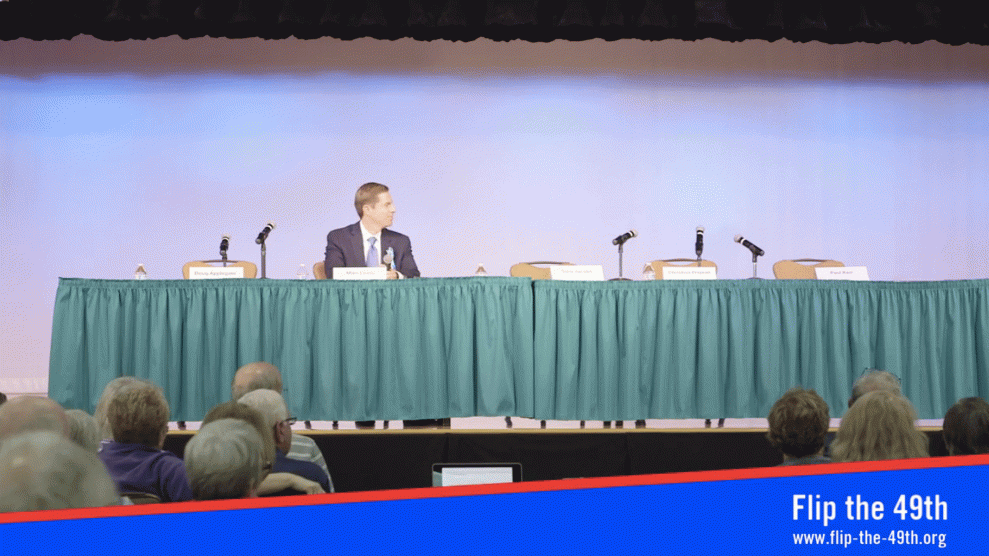
Mike Levin, alone on the stage at the "candidate viability forum" in Carlsbad, California.Flip the 49th!
“We sit here just three months away from the primary election, and your campaign appears to have fallen apart. Why did this happen?”
That was one of the questions fired at Democratic candidate Doug Applegate—a trial attorney and retired Marine colonel running for Republican Rep. Darrell Issa’s House seat in California’s 49th District—at a political event held in San Diego County on Friday night. Hundreds of people had packed the Ocean Hills Clubhouse in Oceanside, California, filling up the main room and spilling into crowded overflow areas. More than a thousand others were watching on Facebook Live. They were in attendance to hear answers from the five Democratic candidates campaigning for their votes. But the question was met with silence. Applegate, one of the front-runners ahead of the June primary, was not on the stage. He decided to go to a bar instead.
All five Democrats were expected to take part in the forum, but the candidates, one by one, began to back out just hours before the start time, leaving a single contender on the stage. Mike Levin, an environmental attorney and the other front-runner in the race, was left uncontested with a packed house of voters, the sole benefactor of his opponents’ decision to ditch the event.
The event was organized by activists from Flip the 49th, a grassroots activist outfit turned independent expenditure committee (super-PAC), and a local chapter of the progressive group Indivisible. They dubbed it a “candidate viability forum,” and in asking such pointed questions, their aim was to start figuring out how to fix a potentially devastating problem facing the district’s Democrats.
Ever since voters passed a 2010 ballot initiative, California has operated on a “jungle primary” system, which sends the top two primary vote-getters to the general election—regardless of their party affiliation. Under this system, a traditionally red district could end up with two Republican candidates on the November ballot if the Democratic candidates split the votes. In the 49th District, which has reelected Issa for eight consecutive terms but voted for Hillary Clinton over Donald Trump in 2016, this is a serious threat. It was made even worse in January when Issa, who narrowly eked out a victory over Applegate in 2016, announced his retirement, thus opening up the field to eight other Republicans who have announced their candidacy, many of them without the same kind of divisive baggage Issa would have brought to the race.
The so-called “candidate viability forum” was to address this problem directly. Ellen Montanari, one of the event’s organizers, told me earlier this week that she wanted the five Democratic candidates to answer this: “What makes you think you’re the one who’s going to save the republic here? Because it looks like so long as all of you think so, we’re going to go down in flames—and this will remain a Republican seat.”
Applegate was the first to publicly withdraw from the forum. At 12:30 on the day of the event—which was announced in early February—he posted a “CHANGE OF PLANS” on Facebook. “Please join us tonight at 18:00 for our first ever ‘ATFR’, (Ask The Front Runner) at Bagby Beer Company,” he wrote. Less than an hour later, Sara Jacobs’ campaign announced that she too would not attend, citing concerns that the event was sponsored by a super-PAC. Two hours later, Paul Kerr issued a similar statement, saying, “We believe that the ethical issues associated with attending a forum hosted by a Super PAC are too great. If the Republicans were to attend a forum hosted by the Koch brothers we would rightfully call them out for this.”
According to Montanari, Flip the 49th hired two election attorneys who specialize in campaign law to determine the legality of the event, and they found no legal problems with how it was structured. Because Flip the 49th is a PAC, Montanari says, “We did have to set up some firewalls to make the forum happen, which we did at the express recommendation of the attorneys so that none of this would happen.”
With Applegate, Kerr, and Jacobs out, only two candidates remained. One was Christina Prejean, who kicked off the event by announcing that she was bowing out of the race in an effort to help avoid the jungle primary threat. When she left the stage, only Mike Levin remained, who sat onstage next to four empty seats. “It was bizarre to look to the left and right and realize that I was the only candidate willing to explain my path to win this seat,” Levin told me the morning after the event.
Levin led with a speech and answered questions posed to him: How can he best Applegate and finish in the top two without more Democrats dropping out of the race? “I know there is no substitute for getting out there in the community and doing direct voter contact,” he said, highlighting his background as a grassroots political organizer and his previous stint running the Orange County Democratic Party. “We’ve already knocked or walked or called every single Democrat or decline-to-state in this district once, and we’re going to do it again between now and June 5.”
He also sat quietly as questions directed at the missing candidates were read aloud.
For Paul Kerr: “Is there really any realistic way for you to win without attacking the other Democrats and trying to take votes away from them—and wouldn’t doing so help ensure that the Republicans win the top two slots in the primary, shutting the Democrats out of the general election?”
Silence.
For Doug Applegate: “The polling very clearly shows that you have both high name recognition, and high negatives…Why should we get behind you when you have not overcome the very weaknesses that lost us the race two years ago?”
Silence.
For Sara Jacobs: “We have too many Democrats running, and none of the polls that are public show you in, or even near, the lead. You have said that you plan to spend 20- to 50-times more than any other candidate, and you plan to spend whatever it takes to finish first or second in the primary…The question is: Are you willing to spend the same $4-$5 million to help another candidate who could run in this election?”
Silence.
“I think those other candidates lost a tremendous opportunity to speak to their future constituents,” says Montanari. While things could change before the June primary, there are currently no other forums scheduled to feature all the Democratic candidates. “There were lots of people who came up to me afterward, and many of them said that they were not planning to make up their mind, about which candidate to support,” Montanari says, “but they did last night.” While it took an unusual turn, if the goal of the event was to start whittling down the field, it may have worked. Only one candidate showed up.


